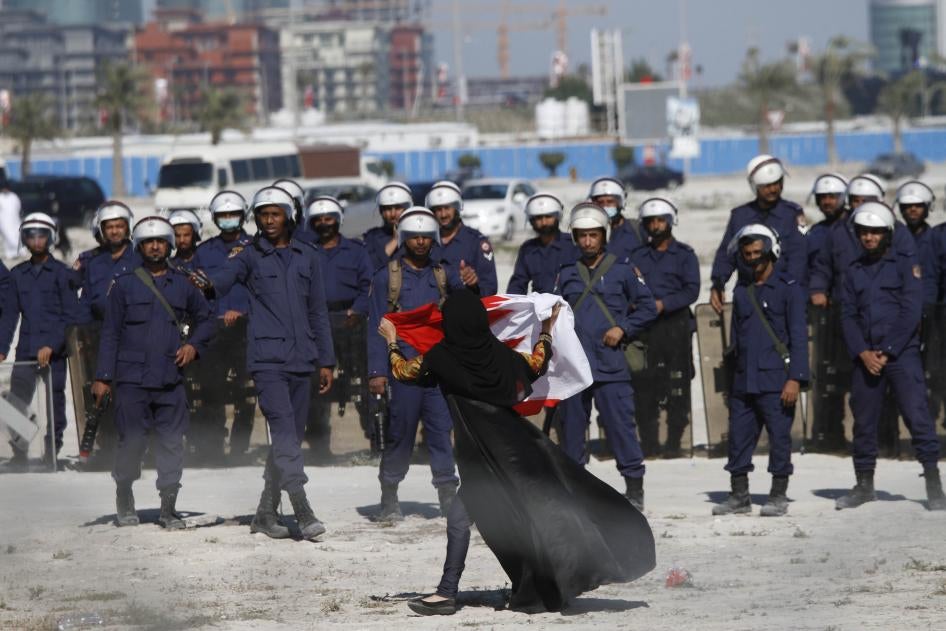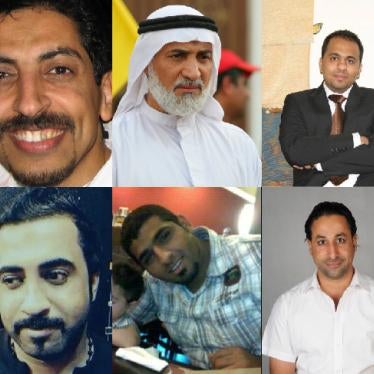(Beirut) – Bahraini activists commemorated the tenth anniversary of the 2011 pro-democracy uprisings amid heavy repression, including the arrest and torture of children, Human Rights Watch said today in its World Report 2022. Independent media and prominent opposition groups remained outlawed.
Health and hygiene conditions in Bahrain’s overcrowded prisons remain extremely serious, and have led to two major Covid-19 outbreaks. Three detainees died in Bahraini prisons in 2021 amid allegations of medical negligence. Prison authorities brutally suppressed a peaceful sit-it at the main Jau Prison, and security forces summoned for interrogation and arrest people who publicly called for the release of detained family members.
“Ten years after Bahrain’s pro-democracy uprising, the authorities have snuffed out all critical voices and severely restricted any space for opposition,” said Michael Page, deputy Middle East director at Human Rights Watch. “Bahrain’s international allies should not continue business as usual and should condition their aid to Bahrain on an improvement in the country’s rights record.”
In the 752-page World Report 2022, its 32nd edition, Human Rights Watch reviews human rights practices in nearly 100 countries. Executive Director Kenneth Roth challenges the conventional wisdom that autocracy is ascendent. In country after country, large numbers of people have recently taken to the streets, even at the risk of being arrested or shot, showing that the appeal of democracy remains strong. Meanwhile, autocrats are finding it more difficult to manipulate elections in their favor. Still, he says, democratic leaders must do a better job of meeting national and global challenges and of making sure that democracy delivers on its promised dividends.
Bahrain further restricted online content by amending the Press Law to require news and broadcasting sites to register and obtain Information Affairs Ministry approval, and it banned electronic media from publishing content that conflicts with “national interest” or the constitution. Between June 2020 and May 2021, at least 58 people were arrested, detained, or prosecuted for their online activities, according to Freedom House.
Thirteen prominent dissidents have been serving lengthy prison terms since their arrest in 2011 for their roles in pro-democracy demonstrations. Those serving life sentences include Abdulhadi al-Khawaja, a founder of the Bahrain Center for Human Rights, as well as Hussan Mushaima and Abduljalil al-Singace, leaders of the opposition group Al Haq. Al-Singace began a hunger strike on July 8 to protest inhumane prison conditions and to demand the return of a book he wrote while in prison, which prison authorities confiscated, to his family. Al-Singace and Mushaima are suffering from preexisting medical conditions, their families say, for which they have not received adequate treatment.
Bahrain has 26 people on death row, all at imminent risk of execution. Human Rights Watch opposes the death penalty in all circumstances because of its inherent cruelty.
Bahrain continued to deny access to independent rights monitors and UN experts, including the special rapporteur on torture.









